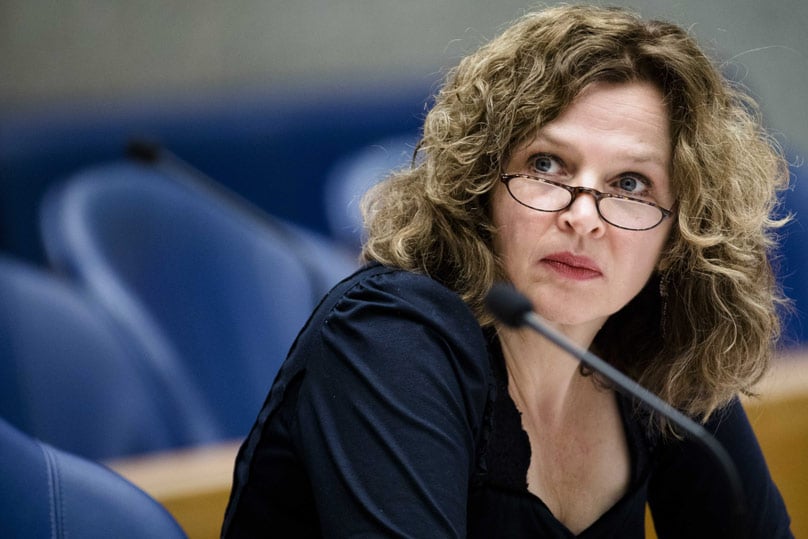
A doctor was called to the bedside of a patient with lung cancer, because she was in pain. At that first meeting, the doctor discussed euthanasia with her as a possible option. He phoned her family doctor, who advised him that the patient had never directly discussed euthanasia with him, so he would not approve the killing. The following day, after knowing her for less than 24 hours, the new doctor gave her a lethal injection anyway, and she died.
The case was reported to authorities in the Netherlands due to the brief nature of the doctor-patient relationship and the lack of sign-off from a second doctor. The authorities decided that prosecuting him would be “unreasonably harsh” and so there were no consequences for the breach.
Another doctor had been treating a patient with dementia who had asked for euthanasia but – at every point it was brought up – responded with, “Not now though, it’s not that bad yet.” Assuming the dementia caused the patient to be incompetent, the doctor dissolved a sedative in the patient’s coffee, injected her with the first lethal drug and, when she resisted, had the patient’s family hold her down while the remaining drug was administered. This doctor has not been prosecuted.
Another doctor euthanised a patient with stomach cancer. When the specialist report attached to the doctor’s euthanasia records was reviewed, it was observed that the specialist had not mentioned euthanasia. When interviewed by a review committee, the specialist said that he had only ever met the patient once, that euthanasia was not mentioned at that time, and nor was it mentioned by the euthanising doctor who subsequently used his report as a supporting document for the patient’s death by lethal injection.
This case too was reported to authorities, but again, no prosecution occurred.
Two more doctors ignored the legal requirement for at least one of the physicians signing off on the patient’s death to be independent. When questioned by the euthanasia review committee, both said they knew an independent doctor was required, admitted that they ignored the requirement, and confirmed that they would ignore the requirement again in the same circumstances. Again, it was decided that prosecution should not occur.
These cases, and numerous others, are detailed not on some pro-life website, but are contained on the website for the Netherlands Euthanasia Commission. In the last 15 years, not one prosecution has occurred for breaches of safeguarding standards.
Supposed safeguards in The Netherlands are proving ineffective because, without enforcement, they are useless. And toothless.
Will it be any different in Australia? It’s hard to imagine how.
In 2014, Victoria’s Dr Rodney Syme told the ABC that he had been helping people to die for decades, admitting on ABC Radio that he provided lethal drug Nembutal to cancer patient Steve Guest. The following year, he invited Fairfax media to film him handing over a bottle of Nembutal to cancer patient Ray Godbold.
Syme’s provision of lethal drugs to his patients is even the subject of judicial comment. A recent Victorian Civil and Administrative Tribunal decision recorded that Dr Syme has given Nembutal to around 170 patients, 40% of whom – he estimates – have taken the drug. It noted that Dr Syme does not keep written records of the psychological or mental condition of his patients or any change in that condition, nor any records about whether he has given them Nembutal.
Supplying Nembutal to a person is a criminal offence. Yet Dr Syme has never been charged with that offence.
Aiding and abetting a suicide is also a criminal offence, with a penalty of up to 5 years imprisonment. Yet Dr Syme has not been charged with that offence either.
Penalties for importing Nembutal include up to 25 years imprisonment and fines up to $825,000. No one has been charged with importing euthanasia, even though in the past 10 years, the Australian Federal Police have seized around 15kg of the drug, enough to kill thousands of people. According to Syme, those caught importing small quantities of the drug usually have it confiscated and given a fine between $500 and $700.
Safeguards, when not enforced, are useless. And toothless.
If euthanasia and assisted suicide are legalised in more places in Australia, doctors like Rodney Syme will be first in line to start “assisting” patients to die.
If they have no regard to present laws safeguarding people against assisted suicide, what makes anyone think they will heed new ones?
If state and federal prosecutors are either unwilling or unable to prosecute clear breaches of current laws relating to assisted suicide, what makes us think they will be any more efficient or effective under a regime where these types of deaths are actually legally sanctioned?
The discussion of safeguards is merely a mirage used to advocate for an inherently unsafe law. Don’t let the advocates fool you. Tell them they’re dreaming.
This article originally appeared at The Spectator Australia, and is republished here with permission.
